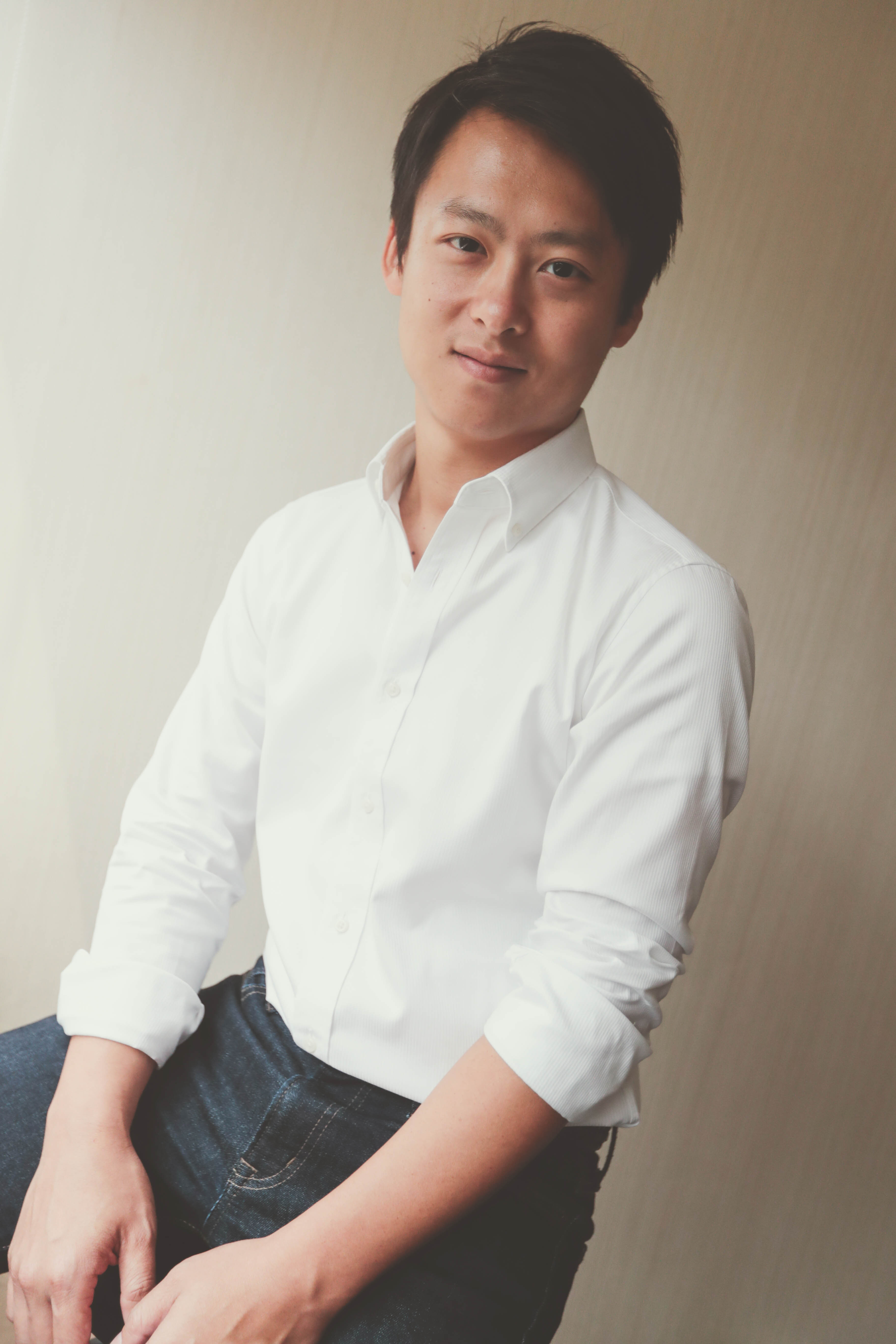Summary
Stanley Fu, the COO of Sense Innovations, is an example of someone who took a life passion to make a positive impact on those with special needs and made it part of a vision that has empowered more than 600 patients today. It is an unfortunate reality that while there are opportunities for the special needs population to be assisted and supported, there are not many to further their potential to do more. With eye-tracking technology and dedicated one-on-one training programs, patients are provided with new avenues of learning and communication methods to truly maximize their potential. This article sheds light on the vision of Sense Innovation, the progress they have made, and where they plan to go from here.
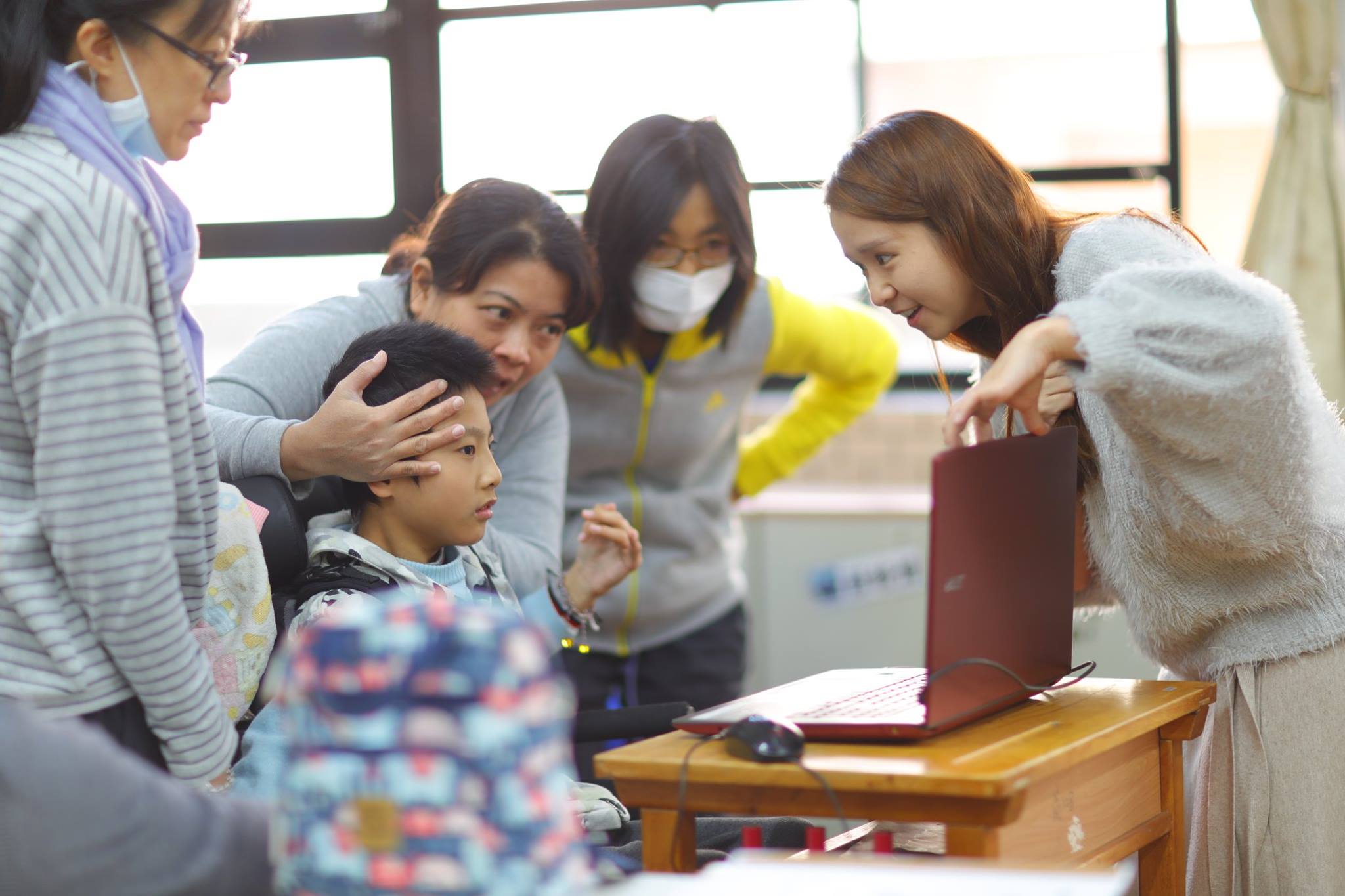
Patient smiling using the eye-tracking technology
Source: Sense Innovation
The Need for Sense Innovation
Today, Sense Innovation (Sense) aims to become a global platform for disabled people, caretakers, therapists, hospitals, and special needs schools and organizations, each communicating and interacting with each other to maximize the potential of disabled individuals by providing eye-tracking assistive technology to the severely disabled. This desire to create something innovative was driven by the understanding of the great capabilities of the individual when equipped with the right technology and opportunities.
Sense was founded in 2015 by Sid Chen and Jay Lin. Their vision began by seeing the amount of help their friend who was physically disabled needed. They sought to create a technology for his benefit. Although it first began for analysis purposes, the team quickly realized that people cannot be immediately helped solely through analysis which led to an evolution to help even more people. Sense came to be after the realization of the positive impact that this product could have on a greater number of people with disabilities. Stanley Fu met Sid back in 2016 and they connected through their common interest of helping people with disabilities, Stanley jumped on the opportunity to serve as a strategy advisor and later transitioned into the role of COO of Sense and is in charge of international expansion.
As a social enterprise, Sense strives to be an organization with a social mission to serve people on a global scale. It isn’t uncommon to have social enterprises develop solutions to pressing problems in society. In fact, the Social Welfare Department of Hong Kong has been promoting social enterprises for years now, through programs such as Enhancing Self-Reliance that funds social enterprises that benefit disadvantaged population. In Taiwan, social enterprises are a relatively active but growing field. As nonprofits and the government realize that social causes cannot rely solely rely on volunteers and NGOs, for-profit social enterprises will begin to take a leading role in championing social causes through innovations.
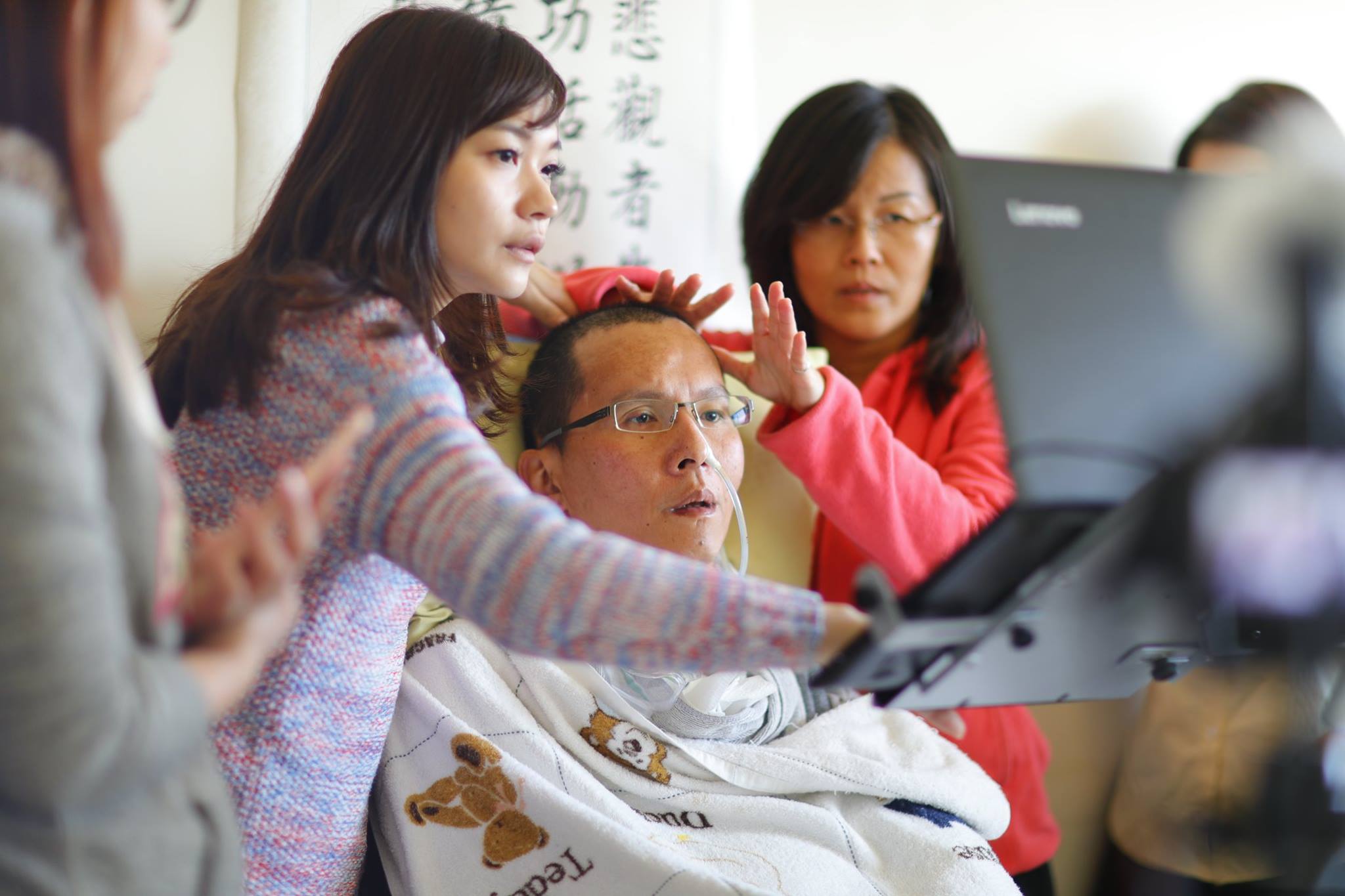
Patient using the eye-tracking product
Source: Sense Innovation
Products and How They Work
The eye-tracking technology is utilized to help individuals with amyotrophic lateral sclerosis (ALS), cerebral palsy, spinal muscular atrophy, stroke, and other disorders to communicate freely, use the internet, get in touch with others through social media, and learn new knowledge from e-books. In fact, one of the Sense team members who is disabled, Ric, taught himself to use Photoshop through the software and is now a full-time graphic designer. It also gives educators the freedom to empower these populations by creating personalized courses and specific occupational and speech therapy programs.
Though some people may find eye-tracking technology a daunting concept, its hardware has actually become more prevalent in commercial use. The recent release of Ubisoft’s “Assassin’s Creed Odyssey” game for instance, actually incorporates the specific hardware, a thin strip that looks like a smaller version of Xbox’s Kinect. Sense leverages similar hardware to build software for individuals with special needs.
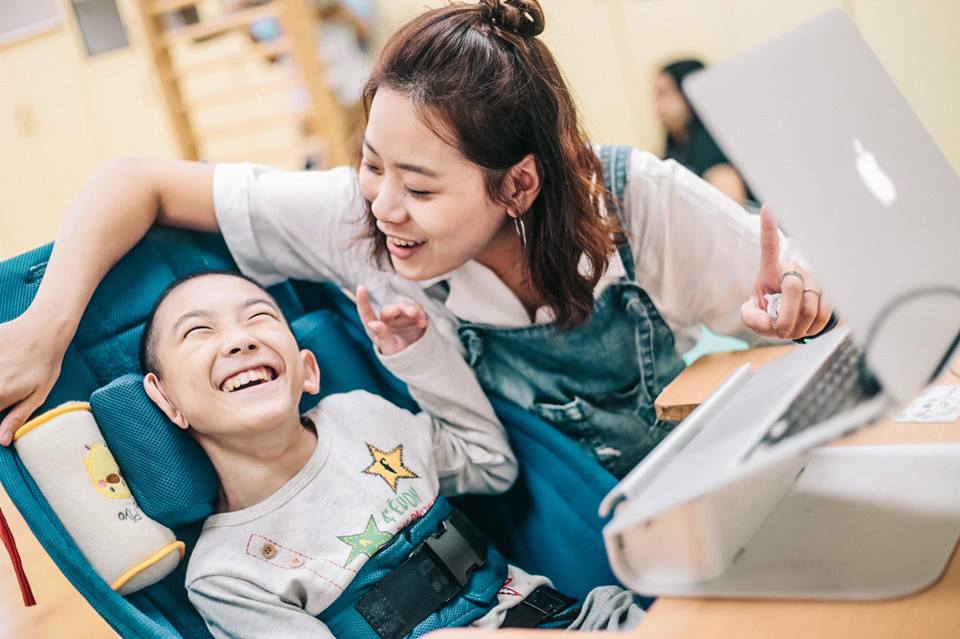
Instructor helping the patient use the eye-tracking software
Source: Sense Innovation
The products range from computer control and communication, educational training, and medical training. EyePlayer is an eye-tracking software specifically designed for people with disabilities to assist with learning, job hunting, self-expression, and other daily needs. Users can easily learn how to use office programs, browse web pages, and even check their social networking sites just as anyone else does. As mentioned previously, our in-house graphic designer, Ric, trained himself on various software including Photoshop through EyePlayer. 1246 Cognitive Learning provides a platform for users and their caregivers to communicate with each other. Instructors can utilize diverse resources to guide and improve the patient’s learning and speech-language ability through real life object recognition, visual discrimination, and attention strengthening. 1246 Doctor-Patient Communication serves as a communication platform using eye-tracking technology for the user to gaze at the screen and convey their needs. EyeJoy is an interactive game targeted for kids to retain their attention as they learn to control the screen with their eyes and strengthen their recollection skills.
Milestones
A key reason attributed to the success of Sense Innovation is the unique, non-intrusive nature of the products and services to supplement regular treatments and fill a gap where long-term care patients are oftentimes left without significant development opportunities. Another area where Sense Innovation differentiates itself from competitors is in the combination of a bold vision and high scalability. In fact, they have already served more than 600 patients and gained recognition from Taiwan's Ministry of Economic Affairs, Taipei City Government, and Taiwan Mobile. Sense is the only organization that has products specially tailored for this population with usability so warmly received. This is most likely attributed to their efforts to maintain close relations with the disabled population and within their ecosystems like support groups and schools to continuously develop and advance their products further. With the implementation of one-on-one training, Sense makes sure that their influence makes a lasting rather than a temporary impact.
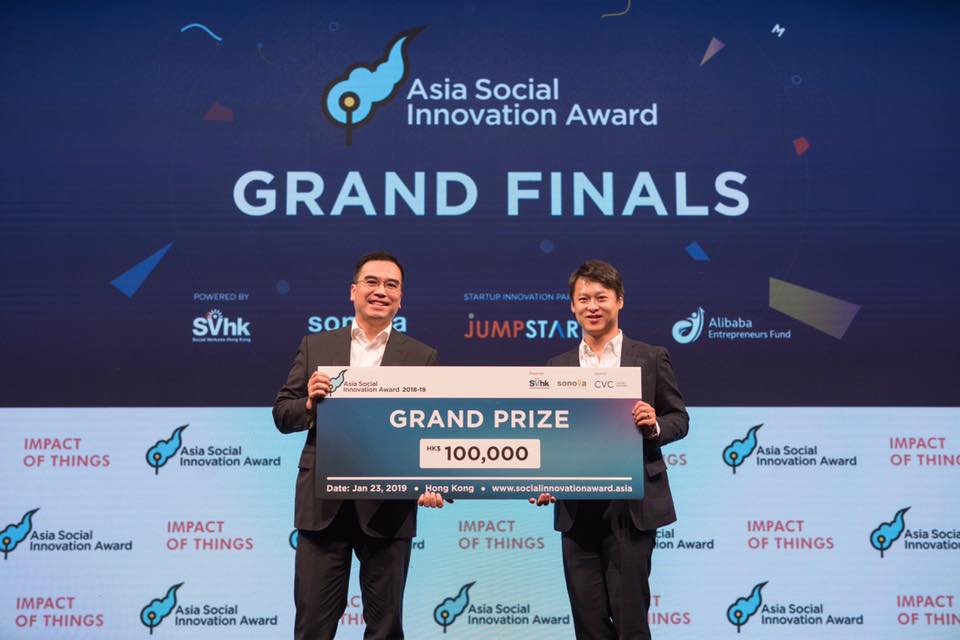
Stanley Fu and Alvin Lam at ASIA pictured receiving the Grand Prize
Source: JumpStarter
It is inspiring and exciting to see the momentum Sense Innovation has had in the past few years not only from the number of patients reached but also through the opportunities they have been a part of. Earlier this year, in January, Sense competed in ASIA, a social startup competition co-partnered by JUMPSTARTER, and beat out competitors from 25 countries to receive the grand prize. This competition highlighted the “Impact of Things” (IMoT) and the relationship between social entrepreneurship and the startup ecosystem. Since then, they’ve received a lot of positive publicity in both Hong Kong and Taiwan and have made great connections with investors like UBS and CVC Capital Partners, as well as collaborators such as the Asian Venture Philanthropy Network and Social Ventures Hong Kong. More recently, Sense took part in the Asia Pacific Social Enterprise Summit in Taiwan’s southern city of Kaohsiung. This two-day event was co-organized by the Ministry of Economic Affairs with more than 1,000 attendees and 62 applications from 13 different countries. There was a showcase of the products and services 60 Taiwan-based social enterprises provided, and it was the first Asia Pacific Social Innovation Partnership Award hosted. This award, which Sense received, was given to encourage and promote social innovation specifically in the Asia-Pacific region.
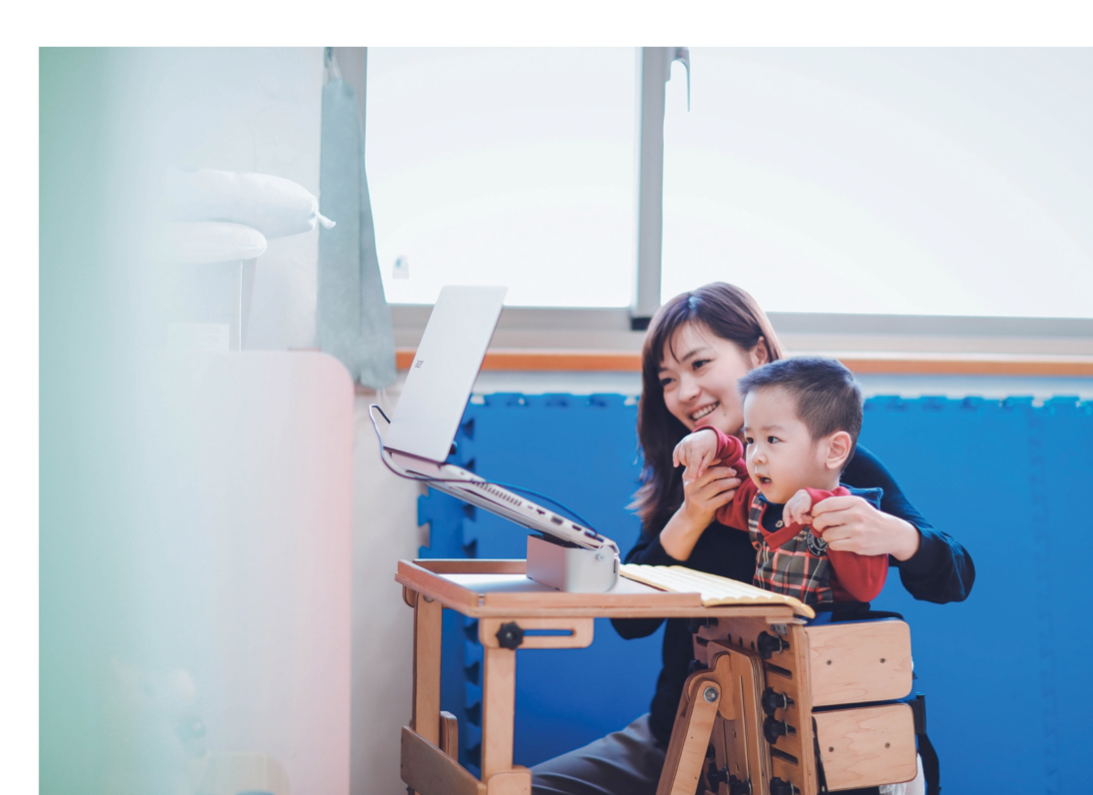
Patient learning to use the eye-tracking product to communicate
Source: Sense Innovation
Progress and Future Goals
As Sense’s COO, Stanley finds the growth at Sense since he first joined the company as an advisor on business strategy quite meaningful. Since then, their products have evolved from being analysis-focused to being practical-focused, meaning that the business model has gone from being solely focused on products to a mix of products and services, with 30 percent of their revenue coming from recurring streams. Without the generous financial support of government agencies, corporations, and charities, Sense would not be where they are today. From the initial product development that was sponsored by the Taiwanese government, to the charities that purchased the products for the benefits of special needs institutions and patients, to the CSR departments that sponsored one-on-one training for the development of special needs children, the impact on 600 patients cannot be solely attributed to the efforts of Sense but to all those who have made its’ vision into a reality along the way.
With such successful milestones, there also came the prospect of scaling; Stanley looked to double their recurring revenue and aggressively expand into Hong Kong. Domestically, Sense looks to expand their business in one-on-one training services and tap into more corporate social responsibility departments for potential collaboration, just as they have done with Fubon Bank’s Charitable Trust and Taiwan Mobile. They hope for more collaboration to fund Sense’s vision to eventually become a global platform. The reason for this drive for growth is due to their understanding of the level of impact this software can have. Stanley had the personal experience of this particular impact when he had the privilege of watching a 12-year-old girl with spinal muscular atrophy use their software to control a computer for the first time. Seeing the joy in her face put tears in his eyes and reassured him of their vision and motivates him to continue his efforts to further growth. In fact, the potential scaling impact is a rough estimate of one percent of any population benefitting from their products and services.
This growth is sought by replicating their current business models into different markets and continuing expansion by increasing capacities. They hope to develop an online platform to reach populations that otherwise cannot be physically reached through potentially large-scale investments, then leveraging the data collection for further research and improvement of their products and educational content. Additionally, such financial infusion would provide the opportunity to develop new technology to enable eye-tracking on mobile devices. On a personal level, the social implication of such scaling efforts is the range of new avenues of communication and learning patients will gain to improve their quality of life, decreased burden placed on caretakers, and as aforementioned, the maximization of the potential of these individuals. This then will increase their contributions in society and eventually improve the workforce. With the proven positive impact the program creates, it can encourage policymakers to increase funding and provide more resources and support to social enterprises such as Sense Innovations hereby benefitting society as a whole.
Works Cited
Ministry of Foreign Affairs, Republic of China (Taiwan). “Asia Pacific Social Enterprise Summit Wraps up in Kaohsiung.” Taiwan Today. May 13, 2019. Accessed May 28, 2019. taiwantoday.tw/news.php.
“Stanley Fu Leads Sense Innovation’s Grand Price Win in Hong Kong.” The Stern Opportunity. February 8, 2019. Accessed May 28, 2019. sternoppy.com/2019/02/.
“The Eyes Have It.” USC Marshall. February 19, 2019. Accessed May 28, 2019. https://www.marshall.usc.edu/news/eyes-have-it.
Author bios
Stanley Fu joined Sense Innovation in 2018 as COO and is responsible for the Asia Pacific Region. Prior to joining Sense, he served as General Manager of VenturelyCo’s Asia Pacific Region and built a successful sourcing and logistics operation for the company’s e-commerce business. He also served as a management consultant and implemented major projects for Unilever China and Cisco Systems. Stanley received his Master of Science in Business Analytics from New York University, MBA from the University of Southern California, and his Bachelor of Arts from the University of California, San Diego. Stanley looks to leverage his professional experience, academic knowledge, and philanthropic network to help bring Sense’s assistive technology to those in need in Hong Kong.
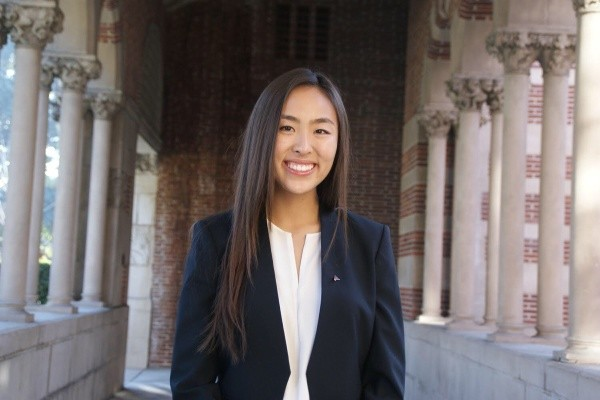
Jane Lee is a rising Junior in the University of Southern California (USC). She is currently part of the Global Fellows Program, which is a highly-selective summer internship program where students can intern in Taiwan, Hong Kong, or Shanghai. Coming into USC, Jane was interested in making a societal impact which is why she joined the Global Brigades at Marshall, an organization that strives to provide strategic investment consulting and financial literacy to under resourced micro enterprises in Panama and Honduras. Then in the summer after her freshman year, Jane interned with Mockingbird Analytics, an organization to empower non-profit organizations through Strategic Planning, Development Planning and Support, and Database Administration. She hopes to continue her interest in societal enterprises and gain valuable insight during her time interning for Sense Innovations this summer.



